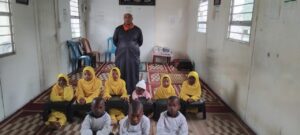
By Ayesha Kajee
Last month, HAK Omar, former chairman of Amaanat Investment Holdings (AIH), paid for a full-page advertorial in Al-Qalam proclaiming his innocence and his son’s innocence of any wrongdoing in the ongoing saga of woe facing the company’s shareholders. Subsequently, investors whose returns have dwindled due to alleged unscrupulous practices during Omar’s tenure requested a response in order to clarify the case.
AIH, operating since 1968, is a property investment company, with about 6000 shareholders. Many are widows, pensioners, and charitable institutions such as burial trusts. AIH owns approximately 30 properties from which investors receive a return, previously around 7% per annum, which has now plunged to between 1 and 2%.
The current board of directors is suing Omar for R166 million. The Durban High Court summons alleges that between March 2013 and October 2021, Omar defrauded AIH through the creation of fictitious invoices. Omar allegedly splurged on overseas trips, expensive cars and luxurious homes, and bought property and other assets abroad for family members.
In the Al-Qalam advertorial Omar claims he and his son were accused without proof. However, a forensic report by Eckhard Volker of Integrated Forensic Account Services, commissioned by the AIH board after a whistleblower raised concerns at its November 2021 AGM, underpins the summons.
Volker found that expenses of around R160 million were debited, classified as “share-issue expenses” and most of them were payments to Kreston KZN, an accountancy firm also managed and co-owned by Omar. According to Volker, the payments were not authorised by the board, there were no proper accounting records and Omar was “personally conflicted in his duties”.
While several shareholders declined to comment or refused to be named, citing fear of victimisation, others were forthcoming.
Ayesha Vahed said: “It has been emotionally devastating. Many of us have been very badly impacted as small shareholders while large (wealthy) shareholders continue to live their normal extravagant lifestyles. We invested our life savings in what we thought was a solid halaal investment and paid our daily expenses from the returns, which have gone down to absolutely nothing! Now we have to work harder again.”
Mohammed Peer, spokesperson for Amaanat Minorities, a civic group of about 52 minority shareholders, says their understanding is that Omar acted without board approval in contravention of SAICA rules, but they also want answers from other previous board members who failed in their fiduciary duties.
“Pensioners and widows without other income streams invested their money in good faith, on the basis that that people of high repute in the community were managing their hard-earned funds. It is unacceptable and not good for the Ummah that these vulnerable people are experiencing immense difficulties with day-to-day survival while some families protect those who have been party to swindling them,’’ Peer said. “Those who’ve done people down and unfairly benefited, need to repay. Remember they will be questioned in the grave about this.”
Current board members cannot comment on the matter as it is sub judice. In April 2022, AIH secured an interim interdict against Omar in the Durban High Court which prevented Omar from selling two luxury apartments in Camps Bay and uMhlanga respectively, allegedly bought with funds fleeced from AIH.
In a supporting affidavit, interim AIH board chair Shaukat Alli Moosa explained that “significant funds had been transferred without authority” from AIH’s account to Kreston, and written off as legimitate share issue expenses, for example consulting, management and accounting fees.
According to Moosa, during a meeting with AIH attorneys, Omar admitted withdrawing between R40 and R45 million “in good faith” in anticipation of such fees. Omar listed where the money had been spent, including: R3 million refurbishment to his home; R3million, R10 million and R4 million to purchase properties in uMhlanga, Camps Bay and Westville respectively; R4 million on motor vehicles; and R4 million on overseas travel.
In his affidavit, Moosa said Omar admitted to perpetrating this fraud but has been reluctant to cooperate with the forensic auditors. Omar offered to repay the money and undertook not to dispose of the assets, but after Omar listed the Camps Bay property for sale at R21 million, the AIH board applied for the interdict.
Via analysis of available legal, forensic and shareholders’ documents, and conversations with various shareholders and others, it emerged that Kreston and Coral are both companies co-owned by Omar. Accounting company Krestoncharged AIH for accounting services and was legally paid for these. Management company Coral managed Amaanat properties and was paid an average of R1.6 million per month.
Over and above this is the R160 million alleged to have been illegally transferred from AIH over 8-10 years as per Volker’s forensic audit as “share capital expenses”. When checking with large accounting firms, we learned that, even if share capital expenses needed to be charged for, these expenses would not ordinarily exceed R10 000 per month or R120 000 per year.
Omar, despite co-owning both Kreston and Coral, and being the AIH chair (a conflict of interest), apparently took major decisions without directors’ resolutions, contravening the Companies Act. Further, Omar is alleged to have invested R300 million of AIH funds in offshore investment company Glenrose, which would have needed shareholders’ approval; they claim this was not sought. Again, an apparent contravention of the Companies Act.
Several shareholders, including Peer and Vahed, believe that Omar overvalued AIH’s property portfolio and the current low returns are partly because some properties were not maintained and fell into disrepair. When shareholders demanded that the previous board step down, over R40 million in arrears was owed by tenants, and no action had been taken to recover these funds. Also, dud properties were purchased at inflated prices, in some cases implicating other former board members.
One example is Markinor House, allegedly sold to AIH for R45 million by property magnate Nic Georgiou, who had purchased the property two months earlier for R22 million from former board member Essop Bana. The R45 million was allegedly paid to Bana’s nominees in AIH shares, who have since received R9 million in dividends on those shares, while AIH has received ZERO rental income for that property to date.
Another is Saveways Mall in Witbank, purchased for R700 million and refurbished at a further R800 million. Its current return on investment is only 2% of those combined costs. In the AIH financial statements for 2020, Saveways Mall, registered under Benfield Investments, is listed at R1 569,941.517, a gross over-estimation.
Other shareholders allege that Omar and former board member Rashid Moosa used new investors’ funds to pay shareholder dividends, maintaining the fiction that returns were still secure at around 7%, even though returns on the Saveways project and others were only about 2%. If true, this implies that Omar was operating a Ponzi scheme in addition to the other accusations.
“He (Omar) has been living it up with his ill-gotten income, his family are secure overseas, while some shareholders are struggling to survive … Does he have no conscience?” queried one interviewee who declined to be named.
Though the new AIH boardis comprised of a mix of experienced businesspeople and professionals, including accountants, attorneys and property experts, it will take time to reverse the fortunes of the company from its current low. Time that most small investors cannot afford.
“The dilemma facing investors is that our returns are negligible and we can’t get our capital back immediately because there is (currently) a moratorium. Some investors passed away in penniless circumstances and others can no longer afford their chronic medications,” Vahed declared. “Some pensioners who valued their independence have been forced to move in with their children and become dependent on them.”
“Hussan Omar fleeced us of R160 million, as the forensic audit proves. He’s been hiding bank statements that he’s not handed over to the forensic guys. Why? What is he hiding?” Vahed added. “The community, including most aalims, seems completely oblivious to what they (Omar and others) have done. Hafez Fuzail Soofie and Moulana Ahmed Mahomedy have spoken out during Jummah khutbahs, but others are silent…”
Amaanat Minorities is seeking a meeting with Omar in the near future, to clarify why Omar has not released all the financial records to the current board, among other questions.
“Amaanat Minorities is a civic organisation of small shareholders, seeking justice for widows and pensioners to ensure their monies are returned to them, so they can move forward with their lives,” Peer noted. Shareholders seeking assistance can email them: Amaanatminorities@gmail.com
Ayesha Kajee is a human rights activist, governance analyst and writer based in Johannesburg. She previously directed the International Human Rights Exchange (IHRE) Programme at Wits University, where she also lectured in Politics and International Relations.


